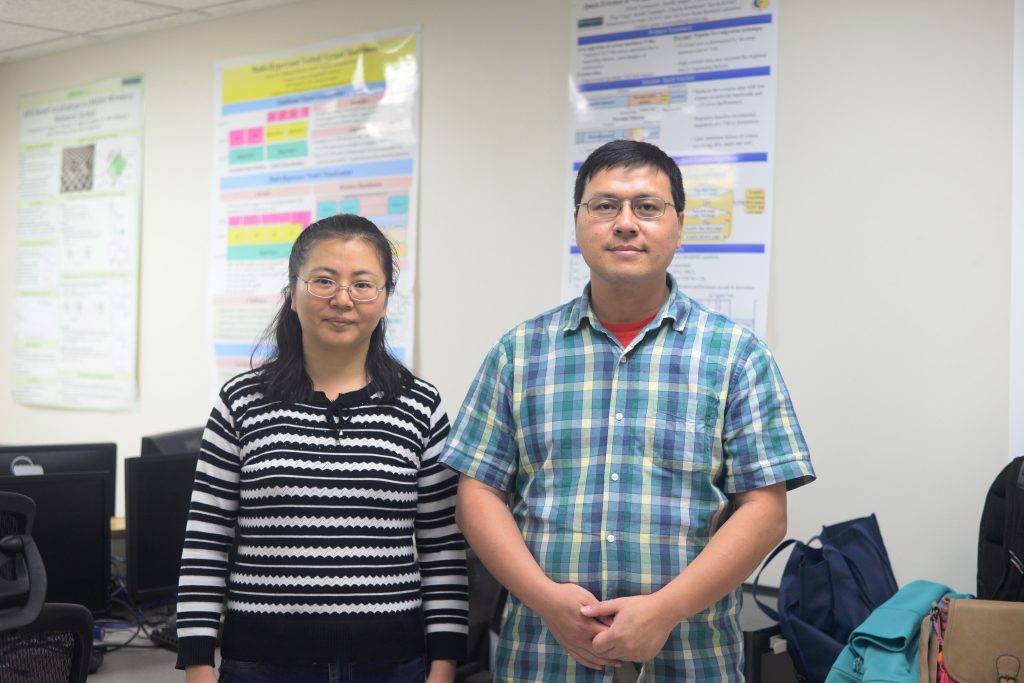
According to a recent Nature.com study, more than 70 percent of scientists surveyed were unable to reproduce the results of other researchers’ scientific studies, and more than 50 percent were unable to reproduce the results of their own. Ping Yang, professor of computer science at Binghamton University, has been working to combat this “crisis of credibility” for over a decade.
Yang, along with Guanhua Yan, an assistant professor of computer science, and two co-researchers at Wayne State University, Shiyong Lu and Fengwei Zhang, was recently awarded $999,999 through a grant from the National Science Foundation (NSF). The funds will be used to develop a computer program that helps boost the credibility of scientific research by preventing scientists from falsifying their findings.
Grants awarded by the NSF, a government agency that allocates funding to researchers whose work it deems important, are highly competitive, with fewer than 20 percent of applicants receiving the funds that they request.
Anita Nikolich, cybersecurity program director at the NSF, said she believes this research is uniquely deserving of funding because it can influence scientific research without disrupting it.
“Dr. Yang and Yan have introduced cutting-edge research concepts into well-known software without impacting the work of scientists and have, in fact, improved the trustworthiness of their results,” Nikolich said. “If research results are questionable because the underlying data has been corrupted or altered, faith in all scientific results can be lost, something we definitely don’t want to happen.”
The well-known software Nikolich refers to is called a workflow, which automates the process of data analysis, lending accuracy and efficiency to the process of scientific research and discovery.
Yang said that current workflow systems are not perfect and lack necessary functions.
“The problem is that although there are many advances in scientific workflows, modern scientific workflow systems lack security infrastructure for securing scientific workflows and the associated data,” Yang said.
To prevent this ability to alter results, Yang and Yan intend to develop software that keeps a secure log of any activity in the workflow. This includes changes to the software and parameters, the input of data and the results of data analysis. For additional security, the software will keep track of who is responsible for any alterations.
The software will also allow scientists to pinpoint honest mistakes that are inhibiting a study’s reproducibility by providing a comprehensive log of all recorded data.
“This problem is more challenging than most people would think,” Yan said. “I think that we are proposing this project at the right time.”
Beyond the creation of a cyberinfrastructure, Yang and Yan hope to have a broader impact on the scientific community by supporting students on the undergraduate and graduate levels.
Dinuni Fernando, a third-year graduate student studying computer science, is working on the project as a graduate research assistant. Fernando said she feels the project is an important stepping stone in her career. She said she finds the research interesting because she is drawn to the study’s capacity to effect change.
“I have always been fascinated about making a positive impact on society,” Fernando said. “I believe that this project gives me the opportunity to serve the scientific community by accelerating and securing future scientific discoveries.”


